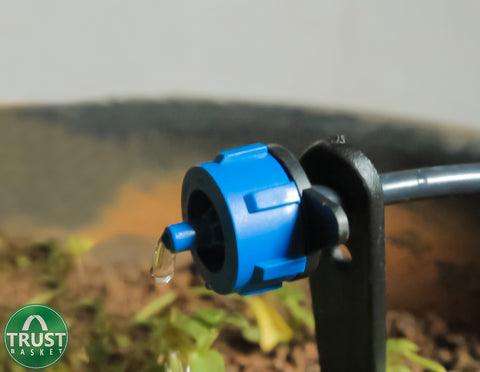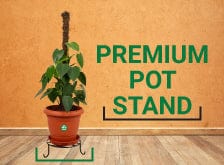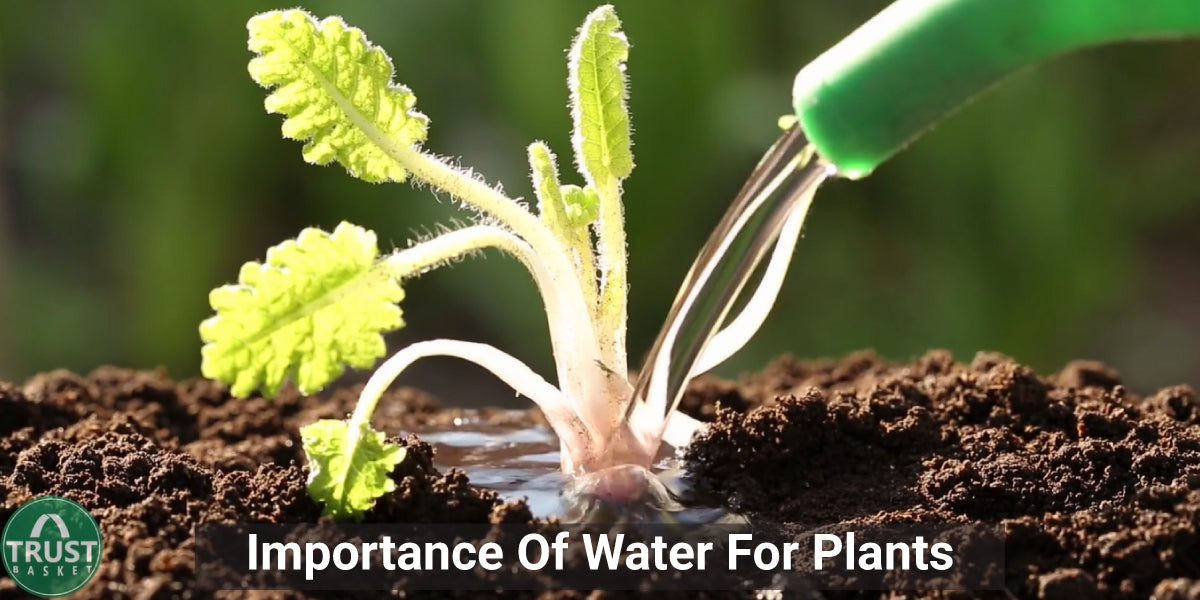How to Grow
Importance of water for plants
Plants are the most beautiful creatures on this earth. They are also living things like you and me. We want energy to live a enthusiastic and healthy life. So it is same for plants too. They also need the energy to live a healthy life. They obtain this energy through sunlight, water, and soil. Every living organism on this earth needs water to survive and thrive well.

All the metabolic processes/ biological activities that take place inside the plant are directly dependent on water. Every cell of the plant wants water for its survival. Without water, the plant cannot perform photosynthesis ( process of food production), respiration, translocation of food to different parts of the plant. And more importantly, if there is no water in the soil, plants cannot absorb the nutrients. It becomes difficult for a plant to survive. So now lets discuss the role of water in detail.
Important roles of water in plant's life:
1. Cell ingredient (90%)
2. Nutrient availability
3. Translocation of the food
4. Transpiration
5. Microbial growth
6. Mechanical support and rigid shape
7. May die without water
1. Nutrient availability:
Plants need food and water for their survival; they get it from the soil. When the soil of your plant contains a good amount of water, nutrients can be absorbed by the plant roots because water solubilizes all the nutrients in the soil and makes it available to the plant roots. So in the absence of water your potting media lies dry and make plants unable to intake nutrients so plants wilt and eventually die to the lack of water. so do water plants regularly.

2. Cell ingredient (90%):
A plant cell is made up of 90% water. 90% of the plant's body consists of water. So by this water percentage, you can understand the role of water in a plant. Water is very essential to plants for their survival.

3.Translocation of the food:
It means whatever the food prepared in the leaves has to be transported to different parts of the plant like stems, roots, flowers, and fruits. So water acts as a carrier for this process of transportation of food materials.
4.Transpiration:
Transpiration refers to the loss of water from plants through the leaf surface. Or it can be called plant sweating. When there is no water supply to the soil, whatever water present in the plant may evaporate and lose the complete water. Therefore the regular application of water is important for the plants.

5. Microbial growth:
For the healthy growth and development of microbes in the soil, water is very important. You might be having a question that what is the use of microbes in the soil? Microorganisms play a crucial role in plant nutrients availability. They convert some unavailable form of nutrients into available form to help your plants. Therefore to maintain a good population of microorganisms, maintain the optimum amount of water in your soil.

6. Mechanical support and rigid shape:
The presence of water in a plant body gives it a shape and mechanical support. Loss of water from the plant body makes it wilt. and the plant will not have the mechanical support to stand straight.
7. May die without water:
If your plant do not get the water for straight one week, it may die. Your plant can survive without fertilizers, without light for some period of time but it cannot survive without water for a long time.
click here to know how to water your indoor and outdoor plants in detail
Harmful effects of water stress on plants:
1. Wilting
2. Reduced photosynthesis
1. Wilting:
The first visual sign of water stress may be wilting. The plant will lose its shape and starts drooping. By this, you should understand that your plants need water. If you notice such signs water your plants immediately.

2. Reduced photosynthesis:
It means plants will not bear a good number of flowers and fruits. Because water acts as the main ingredient in the process of food production. You cannot easily identify the reduced production of food in a plant.
So easy way to identify the water stress is wilting It is the first symptom of water stress in a plant. If a plant is wilted and still green, it can be recovered if noticed and watered early. But a plant that is wilted and turned brown cannot be recovered easily. So do notice the plants keenly and provide water according to its need before it is getting wilted . Just keep in contact with the plants, they will actually tell you what they want (by expressions like, wilting, drooping, yellowing).
Advantages of drip irrigation in watering plants:
The application of water to plants drop by drop for efficient use of water is known as drip irrigation (drip irrigation kit).

- You can save 80% of water if you opt for drip irrigation for your plants when compared to other methods of water application.
- Plants absorb water more efficiently, as we provide water at the root zone of the plants.
- Equal distribution of water for every plant.
- Unlike other watering methods, loss of nutrients present in the soil through leaching will be very less. So plants will get maximum nutrients without suffering from the loss of nutrients.
frequently asked questions:
1. What is the best time to water your plants?
Research has shown that watering early in the morning and evening gives more time for plants to absorb water well when compared to watering in other times.
2. Which is the best way to water your plants?
- Water your plants at the root zone, because plants absorb water only at the root zone, applying water on the foliage brings many problems to plants.
- Use the right watering container for different types of plants. For example, for seedlings, you have to sprinkle water, for matured plants use a big-sized watering can for water application.
- Water at the right time i.e. morning or evening
- Water them deeply and thoroughly and wait until the top inch layer of soil becomes dry before watering them again.
3. How to water plants outdoor?
Plants that are located outdoors usually require more water compare to indoor plants. This is mainly due to direct exposure to sunlight and high temperature. Go for drip irrigation method for saving water along with its efficient use.
4. Is it ok to use tap water for watering plants?
Yes, we can use tap water for plants. As it will contain many minerals provided low fluorine content in water.
5. How much should you water your plants?
The amount of water depends on the size, location and type of plants i.e. moisture-loving plants or drought tolerant plants.
- Usually, moisture-loving plants require frequent watering when compared to drought-tolerant plants.
- Small plants require less amount of water due to less root zone and less canopy.
- Outdoor plants require more water than indoor plants.
Popular Searches: Garden Accessories for Sale, Compost Bin India, Plastic Flower Pots Online, Contemporary Plant Pots, Hanging Pots Online, Colourful Plant Pots, Bird Feeders Online, Rectangular Planters Online, Small Pots Online, Flower Pots Online, Kitchen Waste Compost Bin, Balcony Railing Planter, Buy Pots Online, Indoor Plant Pots, Metal Flower Pot





